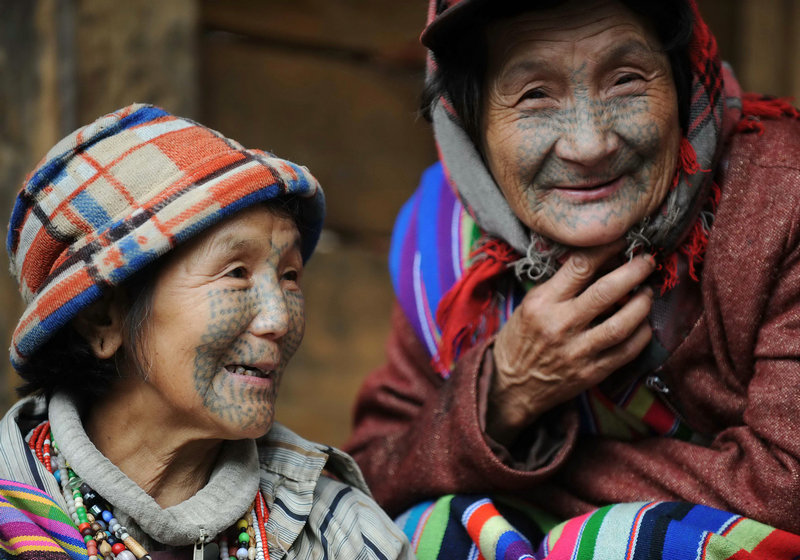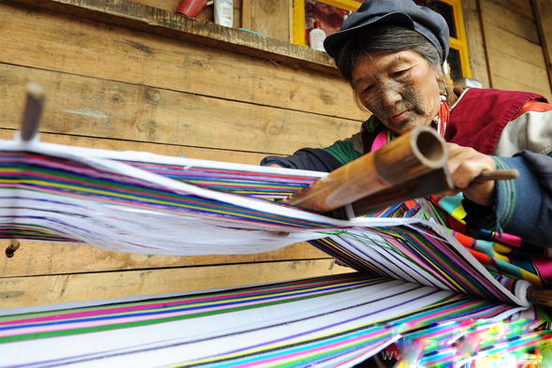

Located in a canyon with a depth of 3,800 meters (12,467 feet) and surrounded by the Tibetan Plateau in the north, the Gaoligong Mountain in the east, and the Dandanglika Mountain in the west, the inhabitated area of the Dulong ethnic minority was isolated.Before the foundation of modern China, the productivity of the Dulong ethnic minority was as low as that of a patrilineal clanship. Today their backward condition has been improved.
![]() Economy:
Economy:
Although the Dulong is one of the smallest people groups among the 56 ethnic groups of China, (with the population of 7,426), their hometown abounds in numerous rare herbs like fritillary, velvet, and Chinese caterpillar fungus, trees like hemlock, and dragon spruce, as well as animals like mossbacks.


![]() Language:
Language:
The Dulong language belongs to Sino-Tibetan phylum and is without written form. In the past, they communicated and made notes by the primitive way of mood-carving. The new China government has created for them characters with Latin letters.
![]() Religion:
Religion:
The Dulong people believe that there are spirits controlling their fortune and the change of nature, so they often worship and charm away those spirits.
![]() Food:
Food:
For food, they nature provides for them with various potherbs, bird's eggs, funguses, and meat. They eat two meals a day, stirred barley noodles or roasted yam as breakfast, and rice or corn as supper. In the winter when is the best season for hunting, they can also enjoy meats like mossback and fish.
![]() Crafts:
Crafts:
The most distinctive handicraft is the Dulong carpet which can decorate both clothes and furniture, and is the most precious souvenir for guests. The craftsperson takes cotton and linen as materials and weaves the colorful threads into a carpet that feels soft, simple and dainty. This is popular token of love among young people.
![]() Other Customs:
Other Customs:
Usually people like to wear a Dulong carpet as part of their clothes and decorations. Girls decorate themselves with beads, ear rings as well as a delicate bamboo basket on their back. In the past, a woman also had a tattoo on her face to show that she had become an adult; it was important for her to do this despite the pain. Now this custom has disappeared.
Many years ago, the Dulong people left their residences by climbing hills and crossing rivers on suspended bridges. Crossing this kind of bridge provided a form of amusement for these people, their only festival in a year is Kaquewa which is usually held in the last lunar month. This festival provides them with several days to enjoy food and wine. Guests are invited and attend on the given date according the knots and wood-carving which tells the time and place of events. The most senior in a family will pray to the spirits for peace and a good harvest.
You will only receive emails that you permitted upon submission and your email address will never be shared with any third parties without your express permission.
